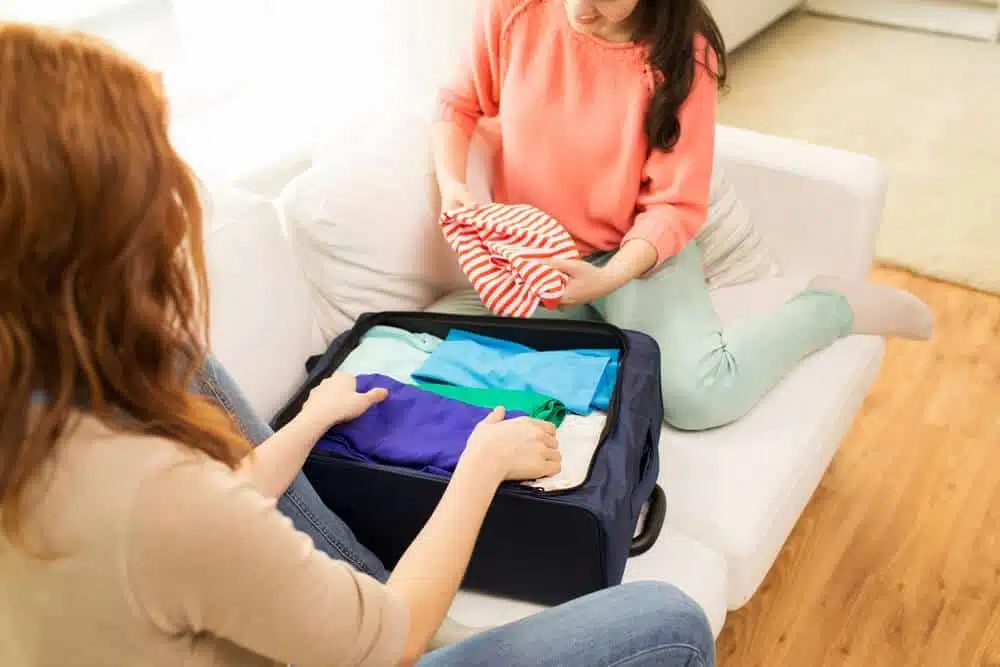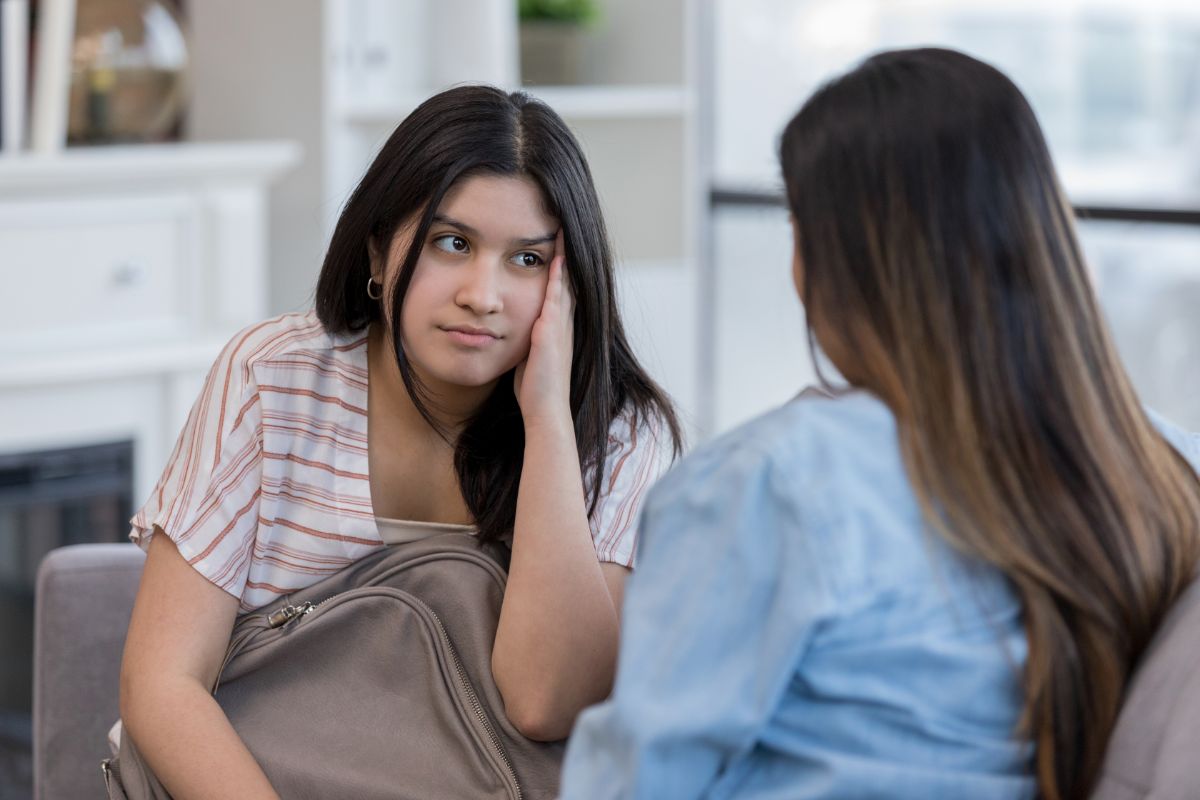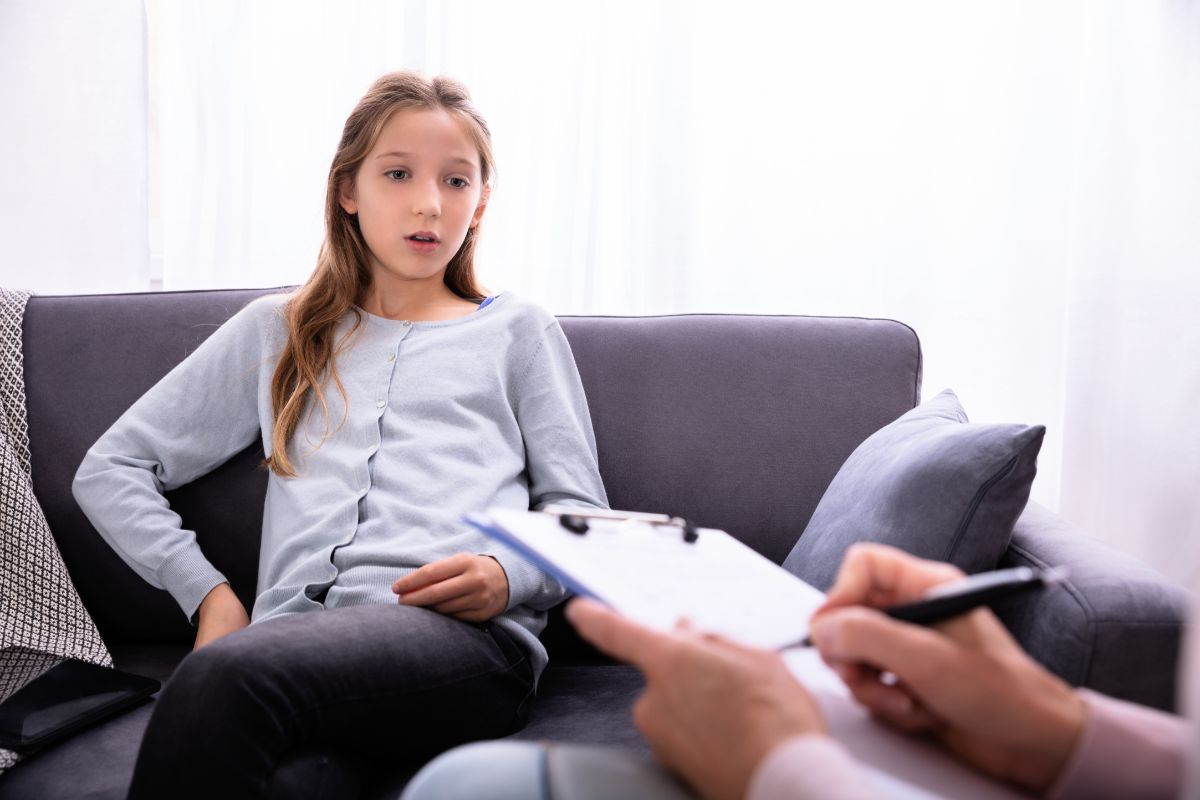
What Should Your Teen Pack for Residential Treatment
It’s a really difficult thing to admit that your teen needs residential treatment for either mental health issues, behavioral issues, or substance abuse. As parents, we want to be successful in raising our children and deal with any issues they have. We want to solve their problems and take care of them.
Unfortunately, there are some issues that parents just aren’t necessarily equipped to handle. Unless you are a parent with special training in counseling or therapy, you will have to turn to the professionals when your teen’s condition is no longer something you can handle.
Residential treatment for mental health issues gives your teen the opportunity to have physicians and psychiatrists available 24/7 to help with counseling and adjusting pharmaceutical therapies. Oftentimes, one of the key issues for teens with mental health conditions is finding the right combination of medications and counseling options.
Residential treatment for behavioral issues is most often a choice for safety. Teens with behavioral issues can get violent when their issues are not being significantly addressed. Residential treatment centers for behavioral issues have proper security, physicians, and therapists to help your teen find the balance they need while reducing the chances of your teen harming themselves or others.
Residential treatment for substance abuse is one of the most critical. Teens with alcohol or drug abuse issues are in constant physical danger – whether from the substances, dealers, or other users. When placed in residential treatment, teens with substance abuse issues are isolated from people who seek to deal to them or want to get high with them. They are surrounded by physicians and therapists who can get them clean and sober.
So, when it is time to put your teen in a residential treatment center, what should they bring with them? When a teen is admitted to a residential treatment center, their bags will be checked. Staff will look for illicit drugs, weapons, or any contraband that could jeopardize your teen’s recovery. Let’s look at some of items teens should and should not bring to a residential treatment center like Beachside.
Mental Health Residential Treatment Centers
Understandably, each treatment center will have its own list of restrictions on items that can be brought to the center. But, some treatment centers have specific restrictions based on the type of mental health issue that is being treated. Here are the lists of some diagnoses and what patients are allowed to bring.
Teen Eating Disorder Recovery
Must Haves:
- Latest lab work and EKG (as directed by our admissions department).
- Note from a physician stating that you are free of communicable diseases (influenza, chickenpox)
- Current psychiatric evaluation from your outpatient psychiatrist.
- The discharge summary from your last treatment facility, as applicable.
- Names, addresses and telephone numbers of current outpatient providers, such as your primary care physician, psychiatrist, and therapist.
- Any over the counter medication or vitamins that you take on a routine basis in their original sealed (unopened) containers.
- Insurance card, prescription card, and currently prescribed medications in their original containers or unit dose packaging.
- $100 in cash or credit card for spending on personal care items or outings.
- Name, address and telephone number of current school, along with the names of teachers; current textbooks plus anything else related to meeting current education needs.
- Immunization records, current medical history and physical (Examination must be within the last six months of your admission date to be considered current.) – This is required by state law.
- Current dental records (Check-up must be within the last six months of admission date to be considered current.)
Recommended Items:
- Comfortable indoor and outdoor clothing appropriate for the season
- Clothes and jewelry that refer to alcohol, eating disorder behaviors, drug abuse or promote violent behavior are not allowed. Sexually provocative clothes (bare midriffs, shorts that are short, baggy or display underwear) are not to be worn.
- Swimsuit for use at the local YMCA and parks.
- Socks, tennis shoes, boots, and other proper footwear for an outdoor group and indoor activities.
- Robe, slippers, sleepwear.
- Electric shaver (manual razors are not permitted)
- Shower caddy, shower shoes, and personal hygiene items (toothpaste, toothbrush, alcohol-free mouthwash, comb, brush, shampoo, hairdryer, deodorant, cosmetics, etc.).
Optional Items:
- Stationery, stamps, and envelopes.
- Books and other reading materials.
- Pictures of family and friends.
- Pens, pencils, and notepads.
- Personal items that will make your stay more comfortable (for example, an alarm clock, small radio/CD player). IPods and MP3 players without cameras are permitted; however, personal gaming equipment is strongly discouraged. There are no personal internet ports in the building and Wi-Fi is not available for use.
Items Not Allowed: Staff is required to check for these items at admissions and periodically during your stay.
- Any items restricted by law
- Candles or incense
- Personal hygiene products that have “alcohol” listed as an ingredient (please check the label of any mouthwash, perfume/cologne, hair spray, shampoo, conditioner, etc.)
- Weapons or self-defense materials
- Metal paperclips or staples
- Manual razors (only electric shavers are permitted)
- Masks of any type
- Smoking and vaping devices and paraphernalia
- TVs; portable DVD players; camera or Wi-Fi enabled handheld games
- Media content rated PG or higher
- Any food or drink from the outside (this includes bottled water)
- Candy or gum of any kind
- Heating pads or electric blankets
- Cameras, computers or other personal electronic devices with built-in cameras and/or recording capabilities
Depression Recovery for Teens
Must haves:
- Latest medical information as directed.
- Current psychiatric evaluation or psychological testing, if available.
- The discharge summary from your last hospitalization, as applicable.
- Names, addresses and telephone numbers of current outpatient providers, such as your primary care physician, psychiatrist, and therapist.
- Name, address and telephone number of current school, along with the names of teachers; current textbooks plus anything else related to meeting current education needs.
- Immunization records
- Guardian paperwork, if applicable.
- Current medical history and physical (Examination must be within the last six months of admission date to be considered current.)
- Current dental records (Check-up must be within the last six months of admission date to be considered current.)
- Insurance card, prescription card and currently prescribed medications in their original container. (Please do not transfer medications into a daily pill dispenser.)
- Signed interstate compact agreement from local state agency (if you are coming from outside the state of the center).
- Previous psychiatric medications, doses, and reactions.
Recommended items:
- Comfortable clothing and outerwear appropriate for the season (layering is recommended). Provocative clothing and/or jewelry which refer to alcohol/ drugs or promote violent themes/behaviors are not allowed.
- One-piece swimsuit, towel and water shoes for swimming (indoor and outdoor) and boating.
- Tennis shoes, boots and proper footwear for outdoor and indoor activities.
- Robe, slippers and sleepwear.
- Personal hygiene items (toothpaste, toothbrush, shampoo, comb, deodorant, cosmetics, hygiene caddy etc.).
- Spending money (plan on $30-40 per month for group outings). Residents have a secure location to store cash.
Optional items: Space is limited for each resident
- Stationery, stamps, and envelopes.
- Reading materials.
- Pictures of family and friends for your room (no frames).
- Some musical instruments (please review with our admissions representative).
- No cell phones and no electronics are permitted!
Additional items not allowed: Staff will have a family member take these items back home if they are found.
- Candles or incense.
- Perfumes, colognes or items with a noticeable aroma.
- Perfumes, colognes, mouthwashes, hair products with alcohol listed as present in the first 3 ingredients.
- Razors (a wet/dry battery-operated electric razor may be brought in if desired).
- Any items restricted by law.
Behavioral Issue Residential Treatment Centers
Behavioral treatment centers often handle some psychiatric conditions, but they can also handle issues like suicidal ideation, self-harm, adjustment disorder, and other behavioral conditions. As such, their lists of items are so similar that they offer just one list for all conditions:
- Current ID
- Health Insurance Information
- Contact Information (Health Providers & Family)
- 5 pairs of pants or shorts
- 5 t-shirts/undershirts
- 5 regular shirts
- 7 pairs of underwear
- 2 sweatshirts, sweaters or hoodies
- 3 bras (no underwires)
- 7 pairs of socks
- 1 pair of slippers
- 2 pairs of pajamas
- 2 pairs of tennis shoes
- 2 pairs P.E. shorts or sweatpants
- 1 coat, pair of gloves and hat
- Clothing must be in good repair (no holes/tears) and in good taste.
- Shorts must be at list fingertip length (shorts must be worn under dresses or skirts)
- Clothing with drug, alcohol, satanic, violence, gang or sexually inappropriate themes are not allowed.
- Belts and ties in clothing are not allowed.
- No sagging or unbuttoned pants.
- Shoes or slippers must be worn at all times.
- Weather appropriate clothing is expected when going outdoors.
- All inappropriate clothing will be marked with your name and stored for family to pick up or until you are discharged.
- All clothing must provide adequate coverage
- During the Orientation period, no jewelry will be allowed.
Items That Aren’t Permitted
- Hygiene products that contain alcohol are not permitted
- No glass items are permitted
- Flat irons, curling irons, and hair dryers may be used with staff supervision
- Shaving is permitted with staff supervision
- No sharp items permitted, including staples/paper clips
Substance Abuse Residential Treatment Centers
When dealing with teen substance abuse, it is essential that the teen focus on their physical, mental, and emotional recovery with very few distractions. Those who have abused for a long period of time will have a longer detox period and require medical supervision. There is a very specific list of permitted items as well as a list of prohibited items at most residential treatment facilities:
Items Permitted
- Casual attire, modest bathing suit, workout clothing
- Personal hygiene items
- Picture ID
- Approved prescription medication (will be locked in office)
- Insurance card and sufficient money to cover cost of medications
- Spending money (will be locked in office)
- Personal MP3 Player (without internet access)
- Gum
Prohibited Items
- Computer, iPad, electronic workbook, or MP3 players with Internet access
- Alcohol or non-prescription/illegal drugs
- Aerosol cans
- Perfumes or any product containing alcohol
- Revealing clothing
- Clothing with alcohol or drug logos/graphics
- Outside food, candy, or drinks
- Magazines, books, or videos with sexual content
- Guns, knives, fireworks, or any item of potential danger or commonly used as a weapon
Importance of Lists for Residential Treatment
While there are myriad reasons for the above lists for each residential treatment center, there are general aspects of mental health treatment that all centers must watch out for, including self-harm, harm to others, sneaking substances, or using technology to “escape”.
Self-harm is, unfortunately, a reality of many mental illness diagnoses. Teens who are suffering from suicidal or self-harming thoughts, or who have an out of control level of anxiety, can start cutting, binging and purging, or behaving in otherwise self-harming manner. The teen desperate to alleviating anxiety could even use a hairclip to cut open his or her skin; that is why the facilities are so careful with the lists of permitted items.
By the same token, teens who find themselves in a place they don’t want to be may act out by harming others. They could use a belt, heavy hairbrush, or even a sharpened toothbrush to harm either staff or other patients in the residential treatment facility.
Many patients at any age try to sneak in drugs or alcohol when they check in to a residential treatment facility if they’re in treatment for addiction or a dual diagnosis. They can hide them in pairs of socks, shoes, secret pockets in their luggage, or any number of places that they think staff won’t think to check. They are wrong. Staff at these facilities are trained to look for exactly that when searching an admitted patient’s luggage.
One item that devastates many teens when they realize that have to give it up is the smartphone. While they may feel that being cut off from their friends is torture, this is a safety measure to keep teens from calling dealers or arranging for a friend to sneak in for a visit.

Conclusion
The point of inpatient residential treatment is to focus only on the problem and how your teen can get healthy. The restricted items on these lists are there for their own good, the safety of others, and for the success of the program.




